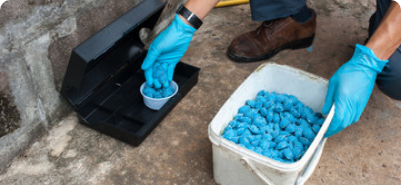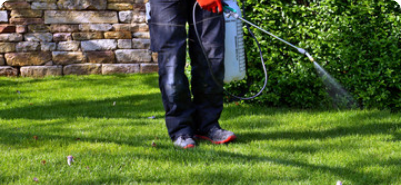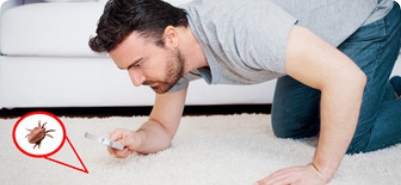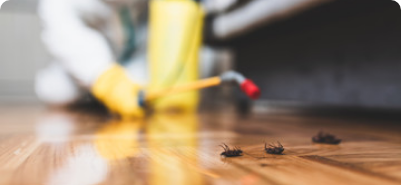For pet owners in Sydney, the challenge of pest and termite control, particularly pest control Sydney, is a pressing concern. Ensuring the safety of furry companions while managing pest and termite control is crucial. Pests not only threaten homes but also the health of pets. Fortunately, there are effective pest and termite control options available that cater specifically to pet owners. This article delves into strategies and products that help maintain a pest-free environment while keeping pets safe.
Understanding the Risks of Pests and Termites
Pests like rodents, cockroaches, and termites can cause havoc in homes, leading to structural damage and spreading diseases. Termites can launch a termite attack on homes, leading to significant structural damage. For pet owners, the stakes are higher, as many pest and termite control methods can be harmful to animals.
Common Pests and Their Impact
Rodents often invade homes, carrying diseases that affect both humans and pets. Cockroaches can trigger allergies and asthma in sensitive pets. Recognizing the signs of a termite infestation early can prevent extensive damage to your home. Termites, while not directly harmful to pets, can cause significant structural damage. The presence of these pests can create an uncomfortable and hazardous environment.
Understanding prevalent pests in Sydney is crucial for effective pest and termite control. This knowledge allows pet owners to take proactive measures to protect their homes and pets. For instance, knowing that certain seasons bring specific pests can help homeowners prepare in advance, implementing preventative strategies such as sealing entry points and maintaining cleanliness to deter infestations. Engaging with local pest and termite control experts can provide tailored advice based on the unique challenges posed by the local environment.
Health Risks for Pets
Many pest and termite control products contain chemicals that can be toxic to pets. Ingesting bait, inhaling fumes, or contacting treated surfaces can lead to serious health issues. Symptoms of poisoning in pets can include vomiting, lethargy, and, in severe cases, death. Therefore, it is essential to choose pest and termite control methods that prioritise pet safety. Natural alternatives, such as diatomaceous earth or essential oils, can repel pests without risking furry companions.
Moreover, it’s important for pet owners to remain vigilant and observe their pets for any unusual behaviour following pest and termite control treatments. Regular veterinary check-ups can help identify any health issues from exposure to harmful substances. Educating oneself about the signs of pest-related illnesses and the potential risks associated with various pest and termite control methods can empower pet owners to make informed decisions that safeguard their beloved animals’ health.
Understanding Termite Infestations
Termites are a significant threat to homes and businesses in Sydney, causing millions of dollars in damage each year. Understanding termite infestations is crucial for effective termite control and prevention. Termites are social insects that live in colonies and feed on wood and other cellulose-based materials. They can infest homes and buildings through cracks and crevices, causing significant damage to structural timbers, flooring, and other wooden components. By understanding the behavior and lifecycle of termites, homeowners can take proactive steps to protect their properties from these destructive pests.
Types of Termites in Sydney
Sydney is home to several species of termites, each with unique characteristics and behaviors:
- Subterranean Termites: These are the most common type of termite in Sydney and are notorious for their ability to cause extensive damage to homes and buildings. Subterranean termites build underground nests and create mud tubes to access food sources above ground. Their colonies can grow rapidly, making early detection and intervention crucial.
- Drywood Termites: Unlike subterranean termites, drywood termites do not require contact with soil. They infest dry, seasoned wood, such as furniture, flooring, and structural timbers. Drywood termites can be challenging to detect because they live entirely within the wood they consume.
- Dampwood Termites: These termites prefer damp, rotting wood and are often found in areas with high moisture levels. While less common than subterranean termites, dampwood termites can still cause significant damage to structural timbers and other wooden components in homes.
Signs of Termite Damage
Detecting termite damage early can save homeowners from costly repairs. Here are some common signs of termite damage to watch for:
- Mud Tubes: Subterranean termites build mud tubes on walls, ceilings, and foundations to travel between their nests and food sources. These tubes are a clear indicator of termite activity.
- Discarded Wings: Termites shed their wings after swarming, often leaving piles of wings near windows, doors, and other entry points.
- Hollow-Sounding Wood: Termites consume wood from the inside out, leaving a thin veneer on the surface. Tapping on infested wood may produce a hollow sound.
- Cracked or Damaged Wood: Termite damage can cause wood to crack, warp, or become brittle. Inspect wooden structures regularly for signs of damage.
- Termite Droppings (Frass): Drywood termites produce small, pellet-like droppings called frass. These droppings can accumulate near infested wood and are a telltale sign of termite activity.
Safe Pest Control Methods for Pet Owners
There are several pest and termite control methods safe for pets, allowing owners to maintain a pest-free home without compromising their furry friends’ health. These methods include termite pest control services that are designed to be safe for pets while effectively managing termite infestations. These methods can be broadly categorised into natural remedies, integrated pest management, and professional services that use pet-friendly products.
Natural Remedies
Many pet owners prefer natural remedies for pest and termite control. These options are often less toxic and can be made from common household ingredients. For instance, a mixture of vinegar and water can deter ants, while essential oils such as peppermint and lavender can repel insects.
Another effective natural remedy is diatomaceous earth, a fine powder made from fossilised algae. When sprinkled in areas where pests are present, it can dehydrate and kill insects without harming pets. However, it is essential to ensure that pets do not ingest large amounts of this powder, as it can cause gastrointestinal upset.
Integrated Pest Management (IPM)
Integrated Pest Management is a holistic approach that combines various strategies to control pests while minimising risks to pets and the environment. This method involves monitoring pest populations, identifying their sources, and implementing preventive measures.
For example, sealing cracks and crevices, maintaining cleanliness, and removing food sources can significantly reduce pest infestations. By focusing on prevention, pet owners can limit the need for chemical treatments, ensuring a safer home for their pets.
Professional Pest Control Services
When infestations become unmanageable, seeking professional pest and termite control services can be a wise choice. The pest control industry has developed numerous pet-friendly options to ensure the safety of all household members. Many pest control companies in Sydney offer pet-friendly options that utilise non-toxic products. These services often include thorough inspections, targeted treatments, and ongoing monitoring to ensure long-term pest management.
Before hiring a pest control service, it is advisable to inquire about the products they use and their safety protocols for pets. Reputable companies will be transparent about their methods and will prioritise the health and safety of all household members, including pets.
Termite Control: Keeping Your Home Safe
Termites can cause extensive damage to wooden structures, making timely intervention crucial for homeowners. Effective termite management involves a combination of preventive measures and targeted treatments to protect homes from termite damage. For pet owners, the challenge lies in finding Sydney termite treatment methods that do not endanger pets.
Preventive Measures and Termite Inspection
Preventing termite infestations is the best strategy for pet owners. Implementing termite protection measures can significantly reduce the risk of termite infestations. Simple measures such as reducing moisture around the home, ensuring proper ventilation, and storing firewood away from the house can significantly decrease the likelihood of termite activity.
Regular inspections by a qualified pest and termite control technician can also help identify potential issues before they escalate. Early detection is key in preventing costly repairs and ensuring a safe environment for pets.
Safe Termite Treatment Options
When treatment is necessary, there are several options available that are considered safe for pets. Professional termite removal services are essential for effectively eradicating termite colonies and preventing further damage; DIY termite treatments aren’t enough and can be unsafe. Baiting systems, for instance, use slow-acting insecticides that are less likely to pose a risk to pets. These systems are placed in strategic locations around the home and can effectively eliminate termite colonies over time.
Another option is the use of heat treatment, which involves raising the temperature of the infested area to a level that is lethal to termites. This method is chemical-free and poses no risk to pets, making it an excellent choice for pet owners.
Termite Inspection and Detection
Regular termite inspections are essential for detecting termite infestations early and preventing significant damage. A termite inspection involves a thorough examination of the property, including the roof, walls, floors, and foundation, to detect signs of termite activity. Pest control professionals use specialized equipment, such as thermal imaging cameras and moisture meters, to identify hidden infestations. Regular termite inspections, ideally conducted annually, can help homeowners catch termite problems before they escalate, ensuring timely and effective termite control.
Northern Beaches Termite Control
The Northern Beaches region of Sydney is particularly prone to termite infestations due to its warm and humid climate. Homeowners in this region should be aware of the risks associated with termite infestations and take proactive measures to protect their properties. This includes regular termite inspections, termite control treatments, and preventative measures such as installing termite barriers and removing wood debris. By staying vigilant and working with experienced pest control professionals, Northern Beaches residents can effectively manage termite risks and safeguard their homes from termite damage.
Post-Treatment Care for Pets
After pest or termite treatment Sydney, it is essential to take precautions to ensure the safety of pets. Following treatment, pets should be kept away from treated areas for the recommended period, which is typically outlined by the pest control professional.
Monitoring Pet Behaviour
Pet owners should closely monitor their pets for any unusual behaviour following treatment. Signs of distress, such as excessive drooling, vomiting, or lethargy, should be addressed immediately by consulting a veterinarian. It is always better to err on the side of caution when it comes to the health of pets.
Maintaining a Pest-Free Environment
To ensure long-term success in pest and termite control, maintaining a clean and organised home is vital. Regular cleaning, proper food storage, and routine inspections can help prevent future infestations. Additionally, pet owners should educate themselves about the signs of pest activity, enabling them to act swiftly if any issues arise.
Choosing the Right Pest Control Provider
When seeking pest and termite control services, pet owners should consider several factors to ensure they choose a provider that prioritises safety. A reliable termite inspection service is crucial for identifying and addressing termite problems effectively. Researching local companies, reading reviews, and asking for recommendations can provide valuable insights.
Questions to Ask Potential Providers
Before hiring a pest control service, it is essential to ask specific questions regarding their methods and products. Inquire about the safety of the chemicals used, the training of their technicians, and their experience with pet-friendly solutions. A reputable company will be happy to provide this information and address any concerns.
Certifications and Insurance
Choosing a pest and termite control provider with the appropriate certifications and insurance is crucial. This ensures that the company adheres to industry standards and is qualified to handle pest control safely and effectively. Additionally, insurance protects homeowners in case of any accidents or damages that may occur during the treatment process.
Conclusion
Pest and termite control is a critical concern for pet owners in Sydney. By understanding the risks associated with pests and the available safe control methods, pet owners can protect their homes and their furry companions. Whether opting for natural remedies, integrated pest management, or professional services, prioritising pet safety is paramount.
With the right approach, it is entirely possible to maintain a pest-free home that is safe for both humans and pets. By taking proactive measures and choosing the right pest and termite control provider, pet owners can enjoy peace of mind knowing their beloved companions are safe and sound.






